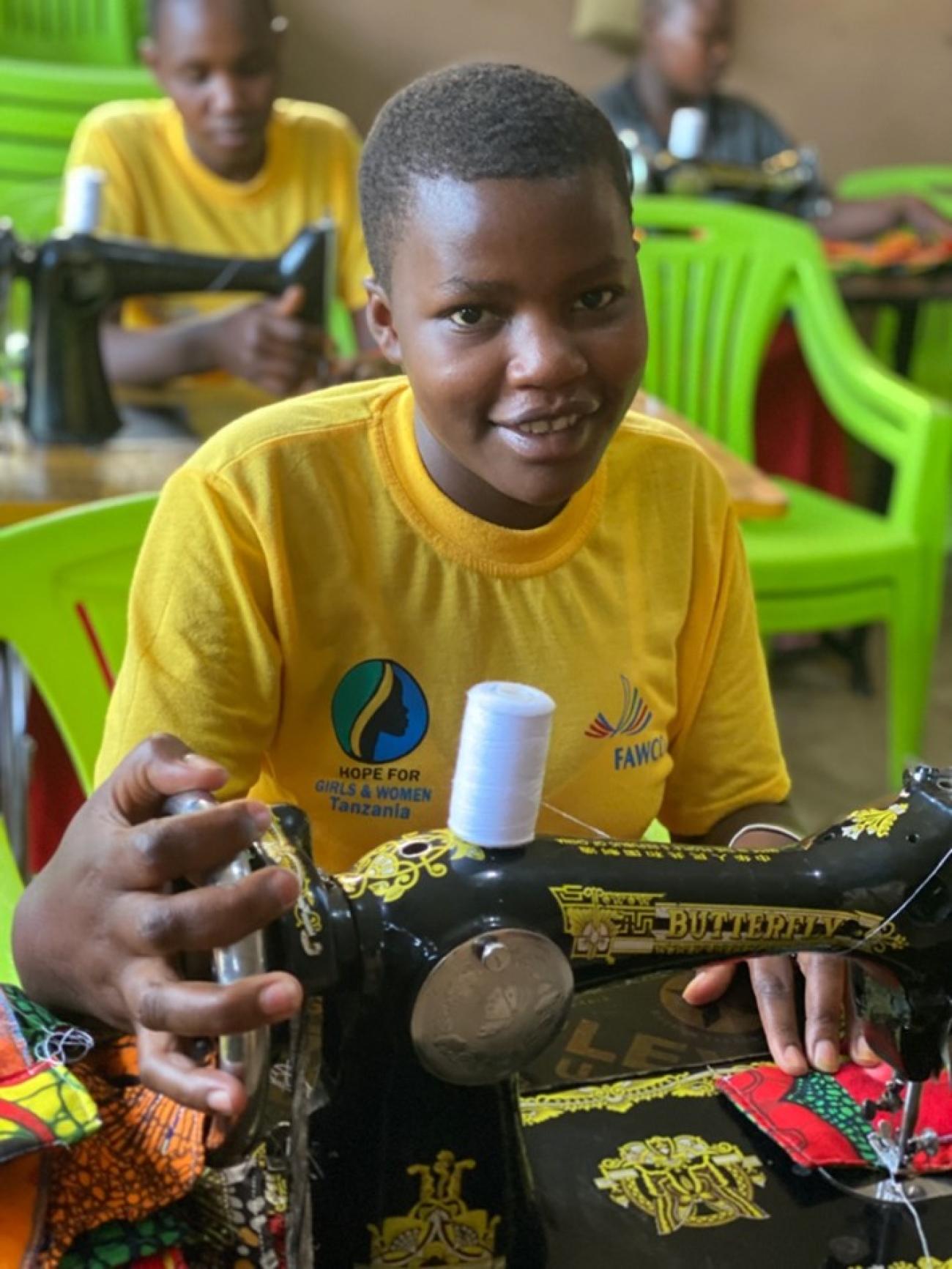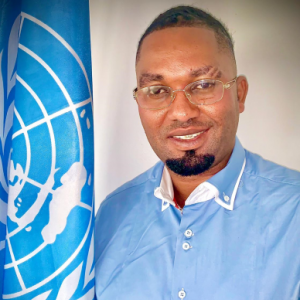We know that when we empower girls, everybody benefits. Girls who are educated, healthy and free can transform their communities and pass on the benefits to their children, and to their children's children. Bhoke Shanalingigwa, an 18-years-old girl from a village called Masanga in Tarime, Mara Region, Tanzania, has been working hard to eradicate gender-based violence (GBV), teenage pregnancy, child marriage and female genital mutilation (FGM) in her community. Bhoke, who lives with her mother and two siblings, is in her third year of secondary school. Growing up, she saw women and girls in her community held back by FGM, GBV, child marriage and teenage pregnancy.
“If only we had a community free from gender-based violence, teenage pregnancy, child marriage and female genital mutilation, then all girls would be able to achieve their dreams”. Said Bhoke Shanalingigwa
Bhoke wanted to do something to defend their dignity, health, rights and choices. She met Bernard Chacha in 2022. Bernard was a young volunteer working with the Association for the Termination of FGM (ATFGM), supported by UNFPA as a long-standing partner. Since 2022, UNFPA’s support to ATFGM has been through the Chaguo Langu Haki Yangu: My Choice, My Rights programme, funded by the Government of Finland. Within this programme Bernard works with young people aged 15-24, to empower them with information and skills to raise awareness about women and girls’ rights, including on the right to a life free of violence, sexual and reproductive health, stigma and discrimination, including toward women and girls with disabilities,and to influence the implementation of Tanzanian government policies in their communities. These young people also work together to hold decision-makers to account on their commitments to advance gender equality in the United Republic of Tanzania.
“The Chaguo Langu Haki Yangu programme taught me about girls’ rights and how to stand for my rights, and that gender-based violence is a violation of human rights. It also helps me make safe decisions about my sexual health”. Said Bhoke Shanalingigwa.
Bhoke worked with Bernard Chacha to organise a school outreach campaign in November 2022 during the 16 Days of Activism, an annual campaign that puts spotlight on issues related to gender equality and promotes dialogues towards ending violence against women and girls. The outreach was all about ending GBV, teenage pregnancy, child marriage and FGM. Working together, Bhoke and Bernard conducted a two-day training at her school and reached 150 students. After this success, Bhoke wanted to ensure that the education continued, so she started a weekly gender club in her school to share her knowledge with other young people both in and out of school.
Becoming a leader in her community
Thanks to her proactive approach Bhoke has become a community leader and has empowered other girls to seek help, end abuses and claim their rights. Through her engagement with other young people in the gender clubs, one of the students, Tomondo told her about some unwanted sexual experiences from a family member she had been subjected to in her home and Bhoke convinced her to report the incident to the local authorities.
“I informed Tomondo about her rights, and built her confidence to report her case to the police She agreed to report her abuser, who was arrested. Now the case is in the hands of the local government authorities”. Said Bhoke.
Bhoke is happy to see that through the knowledge she got from the Chaguo Langu Haki Yangu programme, she is making a difference in her community. She hopes that addressing GBV will help them all to fulfill their dreams. As for her own dreams, Bhoke hopes to become a doctor someday, so she can continue her support to protect the lives of women and girls and promote their rights to health and protection.
The ‘My Rights My Choices’ is a three-and-a-half-year programme (2021-2025) implemented by UNFPA, the United Nations sexual and reproductive health agency, in partnership with the Embassy of Finland in Tanzania. The programme’s goals are to ensure that the rights and choices of women and girls, particularly women and girls with disabilities, are protected and enhanced through a multi-sectoral and holistic response that tackles gender-based violence (GBV) and harmful practices, including teenage pregnancy, child marriage and female genital mutilation (FGM). The programme is implemented as part of activities to realize the National Plans of Action to End Violence Against Women and Children (NPA-VAWC) in Mainland Tanzania (2016/17-2021/22) and Zanzibar (2017-2022).
Direct beneficiaries: Adolescent girls and young women, particularly women and girls with disabilities, living in Shinyanga (Kishapu and Kahama districts) and Mara Regions (Tarime and Butiama districts) and Zanzibar (Urban district in Unguja and Chake Chake district in Pemba) who are vulnerable to or survivors of GBV, FGM and early and child marriage. Indirect beneficiaries: Affected families, targeted communities and government institutions whose capacities will be strengthened to prevent and respond to GBV, FGM, teenage pregnancy and child marriage and to uphold the rights of women and girls, particularly women and girls with disabilities.
The programme is enhancing coordination, knowledge- sharing and policy development to support the implementation of the NPA-VAWC in Mainland Tanzania and Zanzibar, in collaboration with the Government of the United Republic of Tanzania, including local government authorities.
According to the recently released Tanzania Demographic and Health Survey from 2022, the prevalence of Intimate Partner Violence (Physical, Sexual or Emotional) in Mara region declined from 76% to 66%, while the FGM prevalence declined from 32% to 28% and teenage pregnancy declined from 37% in 2015/16 to 31% in 2022 . The prevalence of young women aged 20-24 years who reported being married by age 18 remained unchanged at 38% during the same period.
NB* Names are changed.




